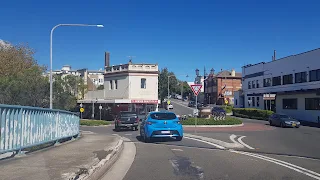Kindly Yours - A collection of writings, thoughts and images. This blog does contain third party weblinks. No AI content is used.
Thursday, 29 April 2021
Observations on Covid Vaccines
A Pause to Reflect
Tuesday, 20 April 2021
The Bonds That Bind
Tuesday, 13 April 2021
Panda Yum Cha, North Ryde NSW
I was given a real treat in joining friends for a Cantonese Yum Cha (drink tea) or Dian Xin (Touch of the Heart)
at my old stomping ground of the Macquarie Shopping Centre, near Macquarie University.
Panda Yum Cha, North Ryde NSW
Fong Chau or Phoenix Claws - they are really braised chicken feet cooked with chili black beans and a Char Siew sauce, amongst other things. An item of a definite acquired taste, but this dish boosts immunity, restores our own skin regeneration, strengthens our bodily joints and moderates blood pressure.
The success of a Yum Cha dish is in its texture of bite, flavour and choice of fresh ingredients.
My top preferred dishes, all small serve, at yum cha sessions generally are:
1. Siew Mai (steamed prawn pork dainty dumplings).
2. Char Siew So (Baked pork buns with lovely pastry).
3. Stir fried flat noodles with caramelised wok heat with tender meat slices of your choice.
4. Roast duck slices served with thin bread sliders and
garnished with sauce and veg.
5. Fish maw steamed in wrapped soy bean rolls.
Monday, 12 April 2021
Katoomba Revisited
The Blue Mountains in New South Wales, over a two hours drive one way west inland from the Sydney Harbour Bridge, has been a consistent tourist destination for both domestic and overseas visitors. Its main hub, Katoomba, seem to have its buildings frozen in time, especially in the town centre.
I understand this clever native fauna comes to have fast food as lunch almost every day along Katoomba Street.
There was a crowd waiting in front of this cafe restaurant, which cleverly has only eight items on its hybrid menu which includes Chinese slider Baos, Bali fried rice and other offerings like a scene from a backpacker and hipster's shared memories.
Over the railway bridge, Katoomba harks back to another era in its feel, architecture and size. Not far away are the Three Sisters at Echo Point and the iconic view of primeval cliffs that epitomise our perception of the Blue Mountains in their natural glory.
What Is Your National Vulnerability?
The Republic of Singapore is significantly reinforcing the need to review reliability and diversity in supplies of its imports, food and foreign worker availability. The period after Covid 19 arrived has changed many assumptions in cross border travel, trade and mobility of talent.
Accessibility to niche and common ingredients has affected its restaurants. Eggs had to be imported from Poland. Special cuts of beef from Australia dwindled.
Prices of imported items in deli supermarkets doubled.
The links of globalisation have been disrupted. An island nation that relies so much on air travel has been jolted off a key pillar of its usual economic drivers.
What kind of vital security does your society cannot afford to lose?
No one nation has everything covered in socio-economic needs. It is not only a pandemic that brings to greater focus a country's vulnerabilities, but war, natural disasters and technological change.
South Korean society prefers peace time security to continue its impressive economic growth. Saddled geographically between North Korea, China and Japan, it has more geopolitical risks than most other countries.
South Africa can yearn for social and economic cohesion security. In a rainbow nation with several languages, cultures and internal economic disparity, unique challenges arise from its dramatic past in order to fulfil its future potential.
The USA has recently experienced continuing racial divisiveness, declining public infrastructure issues, polarisation of political beliefs and actions, mayhem from widespread gun ownership use, mismanagement of an epidemic and public safety problems. Together the various States and the Union face a critical problem in society restoration security.
Corruption, deepening social divides based on racial and religious differences plus political upheavals plague the Federation of Malaysia. This multi-ethnic nation lacks a united cohesion security in order to put its house in order.
Myanmar and Thailand have strong cultural and national identities ruled by governments with military backgrounds. Recent street protests suggest differences in agreement of governance security.
Australia has back up petroleum reserves stored in another country. Its long term dependence on coal driven sources and mineral resources of its rich lodes can be facing changes. Its domestic manufacturing base has been sadly whittled away. This continental nation has an economy so dependent on foreign buyers, markets and political sentiment. Australia does face a lack of a self sufficient, independent and resilient security.
Scandinavian and Baltic nations continue to live in the political, economic and geographical hinterland of both Russia and Germany. Most important to these less populated and culturally different countries is embedding a stronger geopolitical security.
The island nations of the South Pacific are vulnerable to rising sea levels, micro economic disruptions and political influences from bigger nations. They yearn for climate change and geopolitical security.
The United Kingdom continues to evolve in a downsized manner, moving on from days of the Industrial Revolution, Empire, the European Union and worldwide influence. The make up of its society has changed in demographics, economy and flavour of political union. The UK seeks a significant purpose and future role security.
New Zealand, seemingly always at the edge of the World, continues to have ground breaking leadership in the way she conducts herself. This nation asserts its more independent stance in world affairs even if she can viewed as part of the Five Eyes as concocted by the USA. Her indigenous Maoris perhaps have the highest degree of governance participation for any so called Western nation. A society and nation also so in touch with Mother Earth, she perhaps yearns for better natural disaster management security.
Russia spans so wide across its breadth, has a heritage of a rich and yet convulsive history, plus being so different in its political bearing after the fall of its royalty. It is a behemoth of a civilisation yearning for better economic management and social order security.
India can be a multitude of people, cultures and economic variety. Its Hindu core is emphasised by the contemporary Government, even if the land has had various waves of influences from the Persians, Arabs,Moghuls and British, amongst others. This ancient land continues the need for economic, food and political cohesion security.
China has had thousands of years developing its own culture, philosophy and traditions. Its meteoric rise in economic, technological and national purpose over the past 30 years has changed the character of the chess board of the world stage. Yet it continues to battle the challenges of getting better security in international acceptance, population management and self reliance.
#yongkevthoughts
We Will Carry On
How many club memberships, living in Australia, have you chalked up over the years? I am not referring to exclusive country or city clubs where you network with the rich, politically connected and inner sanctum of useful contacts. The prevalence of these other clubs I am talking about here, across the many suburbs of this Great Land, often depend on turnover, a huge but cheap membership base, gaming machines, a bistro of varying quality and some measure of community activities.
Increasingly significant is the local barista. Over many years, so many blends of coffee beans have come out of Australia, establishing Aussie brands in this space with a strong reputation beyond its shores. The routine of having brunch or breakky has contributed to the new styled cafes mushrooming with new fangled food recipes accompanying the beverage. Tea has nevertheless not lost its embedded loyalty, together with other penchants for avocado smash, sourdough toasts, Granola mixes and sauteed mushrooms.
Beer craft and wine appreciation communions now express themselves in watering holes not just in the cities, but also in populated regional hubs. The accompanying pizzas, burgers and randomly performing local musician adds extra zest and layers of attraction to visit such venues. The traditional Aussie pub though still stands tall, but can face challenges without the tribes gathering pre and post footy games, the family gathering for a wholesome Aussie roast and its truly vital role in the fabric of its local community.
And then in capital cities, Asian run bistros seem to be a contemporary cornerstone of those RSLs and comparable clubs. Vietnamese and Chinese operators provide alternative menus to pasta, Wellingtons, schnitzels and salads.
Migrant food has also been hipsterised and hybridised with fusion offerings, contemporary presentations and more use of alternative ingredients. Outlets offering such experiences are evolving a unique trend in the development of what foreigners increasingly acknowledge as uniquely Australian. Drop by a new styled bakery run by Koreans, French and Japanese here - while we still have access to traditional stuff from the Italians, Lebanese and our grandmother's Aussie cookbooks.
The roadhouse is so important for many remote communities, truckers and tourists out in the Woop-Woop. It is a petrol station, sandwich bar, souvenir shop, grocery outlet, cafe, toilet stop, rest area and contact point for many both enduring and enjoying the vast, seemingly empty land that is Australia.
Our borders with other countries has been closed for so many months, but we still enjoy the Long Drive within our own state or when varying governments permit, across to other states on this continental island. Straight roads for many kilometres delightfully surprise our visitors - and also coastal scenic drives, sojourns across farmlands, adventures across deserts or Alpine country. What most of us agree upon is to avoid traffic jammed scenarios in our capital cities during the so called rush hour - or the increasing high tolls on roads labelled as Connex.
The water source, whether it is a constructed indoor or outdoor pool in suburban hubs, lake or a rock pool along one of our countless beaches, beckons many and perpetuates the influence of water in the life of many Aussies.
Most Aussies still reside within 100 km of its magnificient coasts. Swimming and surfing are anchor sports, whether competitive, recreational or
for exercise, in the fabric of this Great Southern Land. Not many activities are as physically wholesome, mentally refreshing and rewarding as interacting with water.
Expressing one's self, taking part in public protests and telling a yarn also run through the veins of Aussie history. At times, the giving of opinions, as overly encouraged by social media channels, politics and so called democratic freedoms, can lead to no action and just talk. The contemporary disease of mixing of facts with diverse views, manipulation of selective truth and aggressive marketing agendas by strong vested interests, has however thrown more than a spanner in this unrelenting confusing cauldron.
The unique spirit of being a larrakin still is very much alive in the Australian character. However, this can be challenged by some aspects of a rising trend of political correctness which can at times lose this essential quality of humour and humaneness in negotiations, dealings and various transactions of society.
Australia has always thought itself as the Land of the Fair Go. Building upon layers of viable cultures, philosophies and traditions, we and our society have special routines, daily regimes and refreshing attitudes, when we zoom in on the beneficial and positive ones. In the course of a day, each of us can find opportunity to have that healthy breakky, soak in a rewarding outdoor activity, press on with that work challenge, catch up with mates and try that unusual dish down the road.
#yongkevthoughts
Sixteen Months On
I remember for many weeks after Covid arrived on our shores in 2020, Aussies were advised it was not necessary to wear face masks by the leading medical bureaucrats and elected political leaders in Canberra.
The same people were stating it was okay to receive Astra Zeneca anti-Covid vaccines as recently as the first week of April 2021. Now they have changed their minds.
For many months, both State and Federal leaders in Australia have regularly sought refuge in their repeated statements "according to our best medical advice" .
The public by now cannot be that patient with possible wool pulled over our eyes. Changing positions on significant Covid related matters by our medical and political "leaders" can undermine our long suffering patience, trust and belief in their varying pronouncements.
There was wavering uncertainty on how the Coronavirus spreads from human to human - aerosal spray projectiles or they remaining on surfaces?
As Covid 19 raged through our Earth, it is evident that authorities in various nations are not sure of several perspectives in controlling this pandemic, or of how the Coronavirus will do next, or of how far the selected vaccines can mitigate this problem.
It will be refreshing if authorities tell us they do not really know or not sure - and we will respect them for this.
Currently available anti-Covid vaccines promise minimising the risks of having symptoms of Covid, but do not mean those vaccinated cannot still catch the infection.
If the push for mass vaccination is to build up effective herd immunity for society, such vaccination roll outs must occur within a short frame of time and the percentage of completed jabs must reach a majority of the population. Any reasons for a much delayed process in completing target vaccinations reduce the chances of achieving such herd immunity.
Herd immunity to me is just the Coronavirus no longer finding sufficient human hosts to replicate, a necessary step in our battle with Covid 19.
The public will appreciate that economy, business and financial activity is paramount, along efforts to minimise the spread of Covid 19.
However, vaccinations are not manna to resolve the matter - they are only one of a set of mindful measures still required to be practised by vaccinated people, like social distancing and face mask wearing in crowds, plus the simple practice of washing hands when coming home.
Even when I receive my annual common flu jab, I accept that I can still catch this kind of cold, only with lowered risks, but I am aware that I can still spread the flu to others who are in close contact with me. So I am mindful to sneeze in the small of my left elbow.
In our so called tolerant society, we also respect individuals who, for various reasons, choose not to be vaccinated. There can be a disturbing trend when governments impose restrictions in movements for those not vaccinated, like not being able to fly, join in certain community activities or enter selected venues. People who are vaccinated or not vaccinated can all still be infected with Covid 19 and be infectious.
Most of the anti-Covid vaccinations available today require two doses. This points to an urgent need in Australia (as opposed to the UK) to improve the process of mass vaccinating people as encouraged by the government.
Yet we cannot deny that the science and technology of most of these vaccines are new. These vaccines have been introduced under emergency health conditions - and not being subject to longer due diligence periods.
Covid 19 will continue to mutate its strains - just like for the common flu, I require an upgraded vaccine every year to counter this development.
Governments must emphasise improving the mass jabbing procedures for Covid 19 on a timely basis if it is required to be carried out every year.
Maybe future anti-Covid vaccinations can be intranasal or oral instead of getting the conventional shot in the arm.
Finally I have a lingering unanswered question - how did the so called Spanish Flu virus die out, even with no applicable vaccines?
#yongkevthoughts
Long Ago and Far Away
My residential suburb lacks having accessiblity to buy Nyonya Kueh (Straits Chinese snacks) and Char Kueh Kak (stir fried savoury radish ...
-
China has 24 distinct solar terms recognised, emphatically for agricultural guidance and echoing historical and cultural significance and so...
-
The Irony and the Paradox. To constantly use our eyes each day from screen to another screen. To not recognise that those in power and in...
-
Friends and relatives back in Asia do remind me of their relative convenience when accessing food they want at any time. It is often a maxi...




















